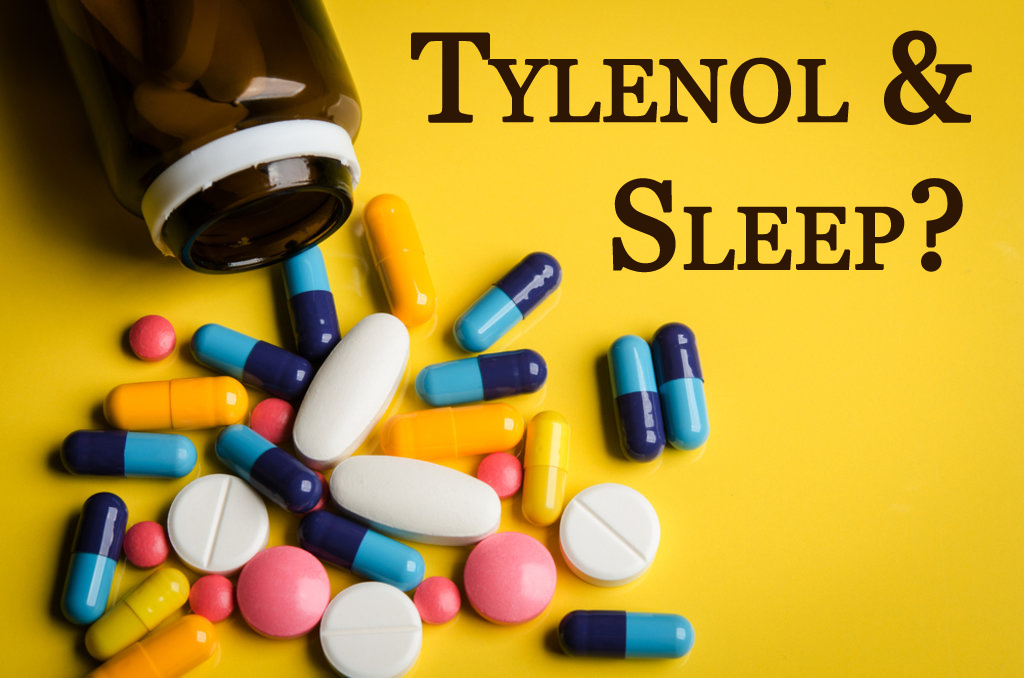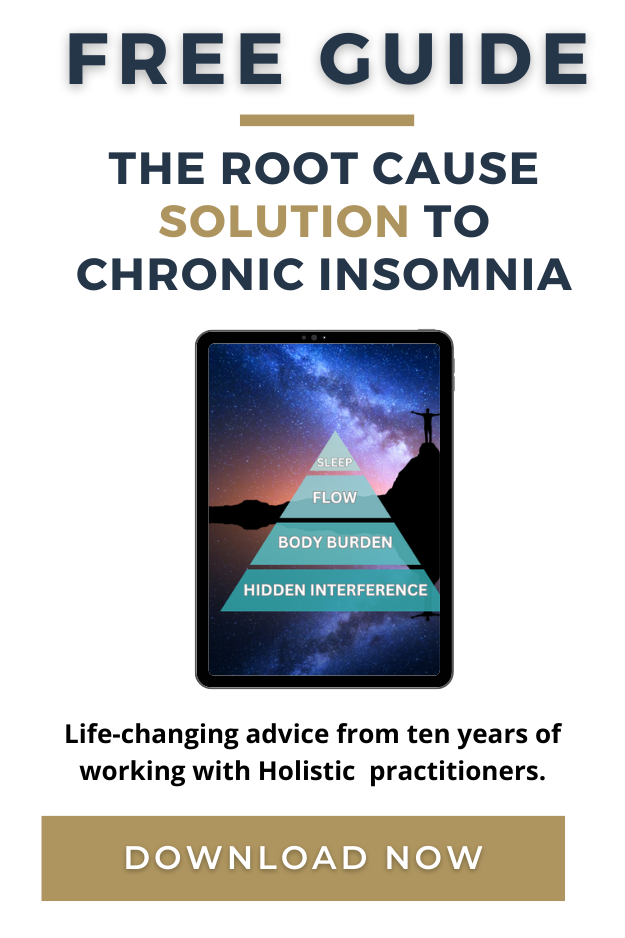I’ve noticed this a couple of years ago and can not deny it – regular, OTC pain relievers and anti-inflammatories such as ibuprofen [Advil, Motrin, and Nurofen] and acetaminophen/paracetamol [Tylenol] (aka NSAIDs) help me achieve deep and more refreshing sleep.
Could ibuprofen and acetaminophen effect GABA receptors? Could this have something to do with desensitizing the signals from a week vagus nerve? And is it possible that these meds desensitize the brain from the stimulating action of excess of histamine and glutamine?
One obvious reason that anti-inflammatories could help one sleep is by reducing pain but I’m not in pain. So what’s up with all that?!
Science is Clueless?
What does science actually have to say about the mechanism behind Tylenol’s action? After some digging I’m stunned: scientists are not even sure how acetaminophen works!
Researchers have been guessing at acetaminophen’s mechanism of action for decades. Some explanations involve chemical messengers of inflammation and pain. Others invoke aspects of neurotransmission in the brain and spinal cord. None of the proposals have accumulated enough supporting evidence to satisfy everyone.
OK, move over science, I’m going to render my own speculations based on my keen self-observation and dangerous levels of self-education:
Temperature Control
My symptoms very closely resemble adrenal fatigue, hypothyroidism or kidney jing and yang deficiency in TCM. One of the most annoying symptoms I experience at bed time are chills that prevent me from falling asleep. Acetaminophen snaps those chills within 15 minutes and I feel OK. This helps me fall asleep and is less likely to wake me from same chills again during the second part of the night.
Conclusion: Acetaminophen is helpful for symptoms of hyperthyroidism by ‘regulating’ body temperature.
Reduced Inflammation
The feeling in the morning is as if the body was submerged in restful sleep; just like the good ole’ times. I’m guessing that it is a quenched inflammation in the gut that is able to give the over-active immune system a break.
Conclusion: Tylenol desensitizes the brain from the stimulating action of excess of histamine and glutamine produced by inflammation or poor methylation and allows for GABA receptors to be more dominant at night.
Anti-Anxiety?
When I take Tylenol I actually feel relaxed and at ease at night. Interestingly, science is on to this effect as well. In an article Tomorrow’s Anti-Anxiety Drug Is… Tylenol?, Scientific American examines how Acetaminophen played a role in altering judgement of a group of people. It hasn’t changed their emotional state per se but it made them more lenient and forgiving. It took the edge off of something, that’s all. How bizarre is that?
Conclusion: Acting as an analgesic, Tylenol takes the edge off of high cortisol or other brain irritants that can cause CNS agitation.
Double-Whammy?
One of the most peculiar ‘warnings’ that may sound as welcome news to us insomniacs comes from “Acupuncture Today” which strongly recommends avoiding taking acetaminophen with GABA because it could cause ‘excessive sleepiness.’ Really? I’m game!
Unsustainable
Main issue with using NSAIDs as sleep aid is that the practice is unsastainble. One can not take these every day. People with congested liver like mine would be wise to avoid them altogether. Long term use will create more problems than we ever wished for.
If you suspect inflammation is at the root cause of your insomnia then I would highly recommend natural anti-inflamatories such as CBD oil, raw tart cherry juice (cherries have the highest anti-inflammatory content of any other food out there and increase melatonin production), turmeric, omega 3s and many others.
Final Thoughts
Nurse forums are full of stories about patients asking for Tylenol to help them sleep. There is something to it but no one is quite able to put their finger on the exact mechanism. My own experience shows that it definitely helps with sedating the nervous system. Be it via reducing the stimulating effects of cortisol or inflammation related neurotransmitters, or keeping me warmer by blocking hypothyroid signals from the vagus nerve, both ibuprofen and acetaminophen/paracetamol are helpful in achieving a more restful slumber.
Over to you… Am I on to something here? What are your experiences with ibuprofen and acetaminophen?





I’m a chronic insomniac, and very few medications help me STAY asleep (my main problem). However, I was recently injured playing basketball and was given prescription strength ibuprofen. To my surprise, not only did it ease the pain of a torn calf; it also helped me get a DEEP sleep. And it reliably did so for the days I was on it, so I tried it again after a week off of it (no more pain), and there I was again sleeping like a baby.
To your deductive points above, my diet is fairly good, and I work out, so I’m not sure this phenomenon has to do with inflammation of the gut, at least for me. I do, however, see how it could be some anti-cortisol agent, since my stress levels are often through the roof. Indeed, a major reason I work out – hard – is to try and limit my weight gains through rough patches (I tend to gain a lot and quickly while under deadline).
All said, I came across your post, because I was curious whether I could find the underlying mechanism to my quality sleep ibuprofen, so that I wouldn’t need to keep using what appears to could hurt me long-term. This has provided me some great clues and a pointing in the right direction(s). Thanks!
And if you do find, once and for all/most, the underlying mechanism, please don’t hesitate to share here. I’d love to know and put this (+ me!) to rest.
Hi JC, this is pretty bizarre, isn’t it? If your cortisol is high your nervous system is in the sympathetic dominance mode and that will cause inflammation. I would be very careful with those work outs and allow yourself plenty of cooling and relaxing activities.
I am 52, and usually sleep very well, since about a year ago I started having tooth pain about once a month and I usually take an Advil (regular Advil) before going to bed when it happens. I noticed that when I take Advil I sleep deeply and wake-up feeling great, one other thing is that I get up almost every night to pee at around 3-4AM and when I take Advil I sleep right through and when I wake up there is no rush to go to the washroom. So I am wondering if it would be wise to take Advil more often? would it affect my health positively?
No, not really. Advil becomes too toxic on the liver when taken long term. Now you know, however, that you have some form of inflammation taking place. It’s time to look for a source which could be anything from food sensitivities to heavy metal toxicity. One thing to try with inflammation is CBD oil. Do you have access to it?
Hi there. I discovered your website while looking for information about stopping ambien. So much good stuff to read and I’m appreciating the comments sections as well. Started 5 mg seven years ago to help sleep when I had serious back nerve pain which was fixed totally with surgery 6 years ago but still on the ambien which I’m pretty sure I don’t need. (Im female 55 yo). A year ago I went down to 2.5 but it was the worst if both worlds – some sleep but not enough and still zolpidem in my system. Now I’m a week totally off and it’s tough going. Tried melatonin, antihistamine, a little of some old codeine different nights. Taking 50 mg CBD each night seems to maybe be slightly calming. Just took 100mg Gabapentin from the back problem days and two acetaminophen. Will see how tonight goes. Now back to reading your posts!
Wow, you ARE tough and it seems you will pull through. It is hell but worth it! I would also add some L-Theanine to your mix… Hang in there.
I don’t have chronic pain of any kind but discovered on my own that if I take 2 Tylenol (2x500mg) at bedtime (plain, not Tylenol PM) I’m assured of falling quickly to sleep and staying asleep all night. If I forget to take it sometimes I’ll fall asleep anyway but if I toss and turn I just get up, take 2 tablets and within half an hour I’m out like a light.
I wake up feeling great. Amazing stuff.
Dave, it works because it subdues inflamation. Please take my advice and look for the source of inflamation, instead of taking Tylenol on daily basis. You can do a lot of damage to your liver if you take it on a regular basis – this is a well established medical fact.
Had to take a week long trip out of state recently. Stayed with a relative in unfamiliar surroundings. Took two Tylenol each night and slept deeply and warmly with no bathroom trips which is unusual for me. After arriving back home I took two Tylenol the first two nights and slept well again with no bathroom breaks. When I was getting ready for bed the third night at home I began to think perhaps two Tylenol at night was becoming a habit so I didn’t take any. I didn’t sleep as well and I was up once to go to the bathroom. The thing I did notice during that day was that my mind wasn’t as clear as normal and when an old friend stopped by I had trouble remembering who she was and where I’d met her. I did not take Tylenol the fourth night and I did get up twice to pee, but during the next day my mind was clear. The deep and warm sleep with no potty breaks is great, but I wonder about the mental confusion when I stopped the Tylenol. I also certainly do not want to harm my liver. Anyone else notice withdrawal symptoms? Thanks.
Interesting experience. It could either be withdrawal or your body readjusting to whatever the Tylenol suppressed in you for a while. This happens with most medicines. It happens to me with antihistamines.
Hi,
I suffer from sleep problems for over 20 years. I dream a lot and even if i manage to sleep for hours i feel very tired when i wake up. I’ve tried a hundreds things but nothing worked.
Recently i noticed that when i took ibuprofen that my sleep is much better. The sleep is deeper and i feel refreshed when i wake up. I googled and only found this blog. I have no idead why it worked but it seems to work.
As I mentioned in another answer – it helps with an inflammatory process. There is a source of inflammation and you need to find the cause to address it. One of the things that helped a lot for me was CBD (there are previous posts and videos about it). What other symptoms are you experiencing? Let’s brain storm together if you want.
thanks for your comment.
I also have neckpain/backpain or headache. Not that often but it occurs some days. Not sure if that’s related to any of this but it could be. but even if that pain is gone my sleep is still bad. Well i also have Gilbert’s syndrome. Not sure if that’s related to anything…
I’ll try CBD. thanks for the advice!
BTW, I’ve read more stuff from your page. I have many amalgam in my teeth. i wonder now if that’s related too coz i often have headache and even years ago it felt like the pain comes from the mouth to my head.
Franky, almost certainly mercury is at play and could be the root cause of your health issues. It is for me. Please read those books and other resources and get that poison out of your mouth (safely) and then detox gently with Andrew Cutler method.
thanks. i will go through all those resources.
but how to really be sure that’s the cause? Is there any fast and secure test to find out if i’m allergic to mercury?
The better sleep experience works for me with acetaminophen but not ibuprofen. What does that say?
It says to use acetaminophen :-)) Jokes aside, one can no overdo as this is not a long term solution. I would try all other natural ways to reduce inflamation and most importantly – figure out the source.
I haven’t slept thru the night in 40 years. Two nights ago I took two acetaminophen before bed, as advised by a friend. I slept the entire night! I thought it was a fluke, so I took two last night as well. Again, I slept thru the night! That lead me to an internet search regarding the association between sleep and acetaminophen, and to your article. I don’t care why it works, just that it does. You have no idea how nice it is for me to finally sleep the night thru. I have never and would never take prescription drugs to sleep. I am anxious to see if this method holds true.
Hi Bruce, funny part is that it very well be a fluke but liver flukes. 🙂 Anyways, what you have discovered is that your chronic insomnia is driven by inflammation. Now the question becomes what drives the inflammation. If you can put out the fire, there won’t be any need for an extinguisher which in this case is quite dangerous. Acetaminophen is very toxic to the liver and you could make things much worse if you keep applying this band-aid. I wrote a long guide about how to uncover stealthy inflammation and what could be the reason behind it. Feel free to download it and keep in touch. https://insomniacnextdoor.com/report/